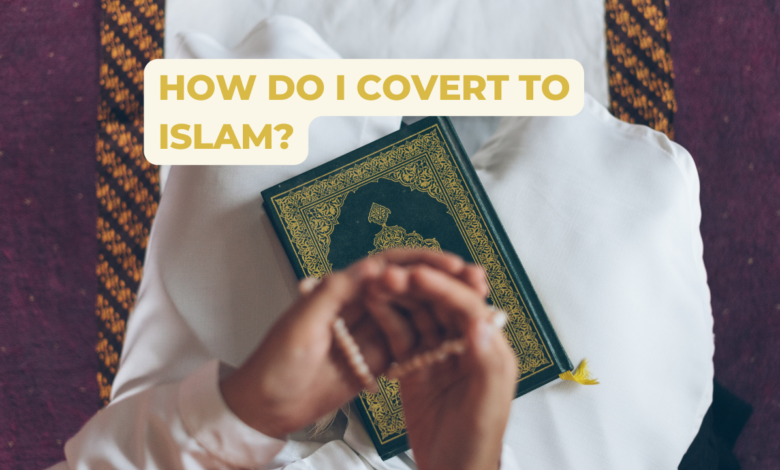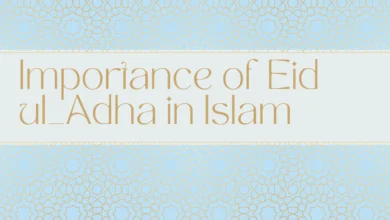
How do I Covert to Islam?
The process typically involves seeking knowledge about Islam, reciting the Shahada (the declaration of faith), embracing Islamic practices, and seeking guidance from knowledgeable individuals in the Muslim community.

Introduction
Converting to a new religion is a deeply personal and life-altering decision. If you’re considering embracing Islam, it’s essential to approach the process with patience, understanding, and a genuine desire to learn and grow in your faith. This step-by-step guide aims to assist those who wish to convert to Islam by providing insights into the process, the significance of the decision, and the support and resources available.
Understand the Basics
Before embarking on your journey to converting to Islam, it’s essential to understand the religion’s core beliefs, practices, and history. Islam is one of the world’s major monotheistic religions, founded on the belief in one God, Allah, as revealed in the Quran, the holy book of Islam. The Five Pillars of Islam, including the declaration of faith (Shahada), prayer (Salat), fasting (Sawm), almsgiving (Zakat), and pilgrimage to Mecca (Hajj), are the fundamental principles and practices of this faith.
Also check
- What is Haram?
- Who is the Current Caliph of Islam?
- What Foods are Forbidden in Islam?
- When was Islam Founded?
- What Is a Christian?
Seek Knowledge and Guidance
Acquiring knowledge about Islam is a vital part of the conversion process. To start, consider visiting local mosques, speaking with knowledgeable Muslims, or attending Islamic classes or seminars. These resources can help you gain a deeper understanding of the faith and connect with a supportive community. It’s also a good idea to read translations of the Quran and books about the Prophet Muhammad’s life and teachings.
Reflect and Self-Examination
Converting to a new religion is a significant decision, and it’s crucial to reflect on your reasons for wanting to embrace Islam. Engage in introspection and ask yourself why this path appeals to you. Your intention should be genuine and sincere, rooted in a desire to establish a spiritual connection with Allah and follow the teachings of Islam.
Consult a Scholar or Imam
A knowledgeable scholar or imam (spiritual leader) can guide you through the conversion process, answer your questions, and provide essential information about the faith. They can also help you recite the Shahada, the declaration of faith, which is the formal step to enter Islam. This declaration affirms your belief in the oneness of Allah and the prophethood of Muhammad.
Recite the Shahada
The Shahada is a central element in converting to Islam. It is a simple statement that proclaims your belief in the core tenets of the faith. It is usually recited in Arabic and translates to “There is no god but Allah, and Muhammad is His messenger.” This declaration marks the moment of your conversion to Islam and your commitment to the faith.
Embrace Islamic Practices
Once you’ve recited the Shahada, you’ll officially be considered a Muslim. However, adopting Islamic practices and rituals is an ongoing process. You’ll be expected to start performing the five daily prayers, fasting during the holy month of Ramadan, and giving to charity through Zakat. Learning to recite Quranic verses and understanding the significance of various Islamic traditions will also be part of your journey.
Seek Support from the Muslim Community
Community is an essential aspect of practicing Islam. You will find comfort, support, and guidance by connecting with your local Muslim community. Attend congregational prayers at the mosque, participate in community events, and build relationships with fellow Muslims. They can offer advice, friendship, and a sense of belonging.
Continue Learning and Growing
Converting to Islam is not the end of your journey but the beginning of a lifelong commitment to faith and self-improvement. Continue to learn, read, and deepen your understanding of Islam. Seek guidance from scholars and imams when you have questions or need support. Remember that your relationship with Allah is personal, and your faith is a continuous process of growth and reflection.
Conclusion
Converting to Islam is a profound and life-changing decision that requires sincerity, dedication, and a strong desire to embrace the faith. By following this step-by-step guide, seeking knowledge, consulting with scholars, and engaging with the Muslim community, you can embark on a meaningful journey of spiritual growth and self-discovery. Remember that your path to Islam is a personal one, and it is essential to approach it with an open heart and a genuine intention to connect with Allah and live according to the principles of this beautiful religion.

FAQs
What is the process of converting to Islam?
The process typically involves seeking knowledge about Islam, reciting the Shahada (the declaration of faith), embracing Islamic practices, and seeking guidance from knowledgeable individuals in the Muslim community.
Can anyone convert to Islam?
Yes, Islam is open to anyone who sincerely believes in the core principles of the faith, regardless of their background, ethnicity, or nationality.
What is the Shahada, and why is it significant?
The Shahada is the declaration of faith in Islam, affirming the belief in the oneness of Allah and the prophethood of Muhammad. It is a fundamental step in converting to Islam.
Is there a specific age requirement for conversion to Islam?
No, there is no specific age requirement for conversion to Islam. People of all ages can choose to embrace the faith.
Do I need to change my name when converting to Islam?
Changing your name is not a requirement for converting to Islam, but some individuals choose to adopt a Muslim name as a way of expressing their new faith.
What are the core beliefs of Islam that I need to understand before converting?
The core beliefs include the belief in one God (Allah), the importance of the Quran as the holy book, and the acceptance of Muhammad as the final prophet.
Do I need to learn Arabic to convert to Islam?
While learning Arabic can be beneficial for understanding the Quran, it is not a requirement for converting to Islam. Many resources are available in various languages.
What support is available for new converts to Islam?
New converts can seek support from local mosques, Islamic organizations, and the Muslim community. Many mosques offer classes and resources for those new to the faith.
What role does the Muslim community play in the conversion process?
The Muslim community can provide guidance, friendship, and support to new converts. It is also a place for communal worship and social interaction.



